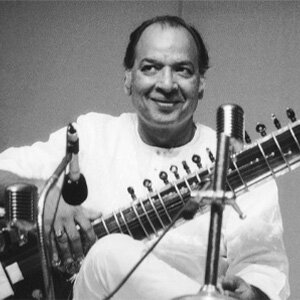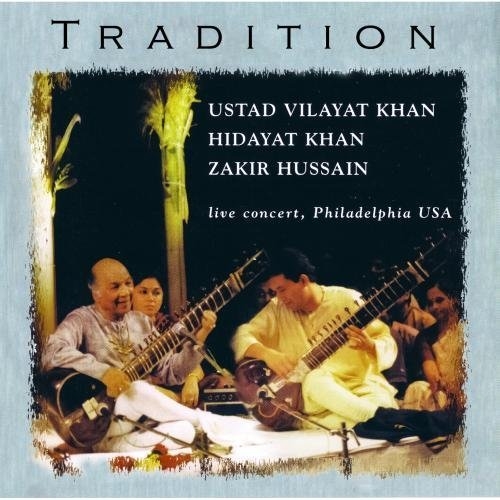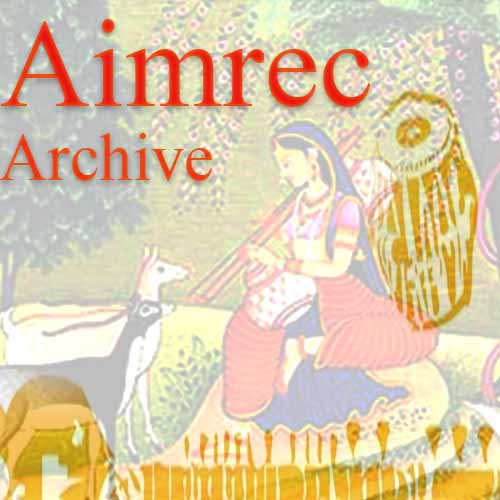
Vilayat Khan (28 August 1928 – 13 March 2004), was one of the most celebrated sitar players in the history of Indian classical music. Known for his exceptional talent, innovative techniques, and profound musicality, he was a leading figure of the Etawah gharana, also known as the Imdadkhani gharana, which has produced several generations of prominent musicians.
Early Life and Musical Lineage
Vilayat Khan was born on August 28, 1928, in Gouripur, now in Bangladesh. He hailed from a distinguished family of musicians with a rich musical heritage. His grandfather, Ustad Imdad Khan, was a legendary sitar and surbahar player, and his father, Ustad Enayat Khan, was one of the most revered sitarists of his time. Music ran in the family, with the traditions and techniques passed down through generations.
After his father’s untimely death when Vilayat was only 10, his mother, Bashiran Begum, took over his upbringing and musical education. He was trained rigorously under the guidance of his maternal grandfather, Ustad Bande Hassan Khan, and later, by his uncle, Ustad Wahid Khan. These early years were formative, shaping Vilayat Khan’s approach to music and establishing a foundation that would lead him to greatness.
Musical Career
Vilayat Khan’s professional career began at an early age. By the time he was in his teens, he was already recognized as a prodigy. He gave his first public performance at the All Bengal Music Conference in Kolkata, where he stunned audiences with his virtuosity. This marked the beginning of a career that would span over six decades, during which he would become one of the most respected figures in Indian classical music.
Vilayat Khan was known for his deep, melodious tone and his ability to evoke profound emotions through his music. He was also a pioneer in adapting the sitar to express the nuances of vocal music, a style known as “gayaki ang.” This approach sought to mimic the subtleties of the human voice on the sitar, including intricate ornamentations such as meend (gliding between notes) and gamak (oscillations).
Throughout his career, Vilayat Khan was a constant innovator. He modified the structure of the sitar, adding an additional string and changing the tuning to better suit his style. He also introduced new compositions and techniques, expanding the repertoire and possibilities of the sitar. His rendition of ragas was marked by a unique blend of precision, depth, and emotional intensity.
Global Recognition and Performances
Vilayat Khan’s fame extended far beyond India. He was one of the first Indian musicians to perform extensively abroad, helping to popularize Indian classical music on the global stage. His performances in Europe, the United States, and other parts of the world were met with critical acclaim, and he became an ambassador of Indian culture.
He collaborated with various Western musicians and composers, though he remained a staunch traditionalist, always grounding his innovations in the classical idiom. Despite the global reach of his music, Vilayat Khan maintained a deep connection to his roots, often performing in small towns and rural areas in India, bringing classical music to a wider audience.
Awards and Honors
Despite his reluctance to accept state-sponsored awards, Vilayat Khan received numerous accolades throughout his life. He was offered the Padma Shri, Padma Bhushan, and Padma Vibhushan, three of India’s highest civilian honors, but he declined them, believing that music should not be judged by such awards.
However, his contributions were widely recognized by the music community, and he received numerous other honors. In 1964, he was awarded the Sangeet Natak Akademi Award, India’s highest recognition given to practicing artists. He also received honorary doctorates and was celebrated by music festivals and organizations worldwide.
Personal Life and Legacy
Vilayat Khan was married twice and had several children, many of whom continued the family tradition of music. His sons, Shujaat Khan and Hidayat Khan, are both accomplished sitar players, carrying forward the legacy of the Etawah gharana. His daughter, Zila Khan, is a noted vocalist.
Khan Sahib, as he was often called, was known for his strong personality and unwavering commitment to his art. He was outspoken and sometimes controversial, especially in his criticism of the commercialization of Indian classical music and what he saw as the dilution of its traditions.
Vilayat Khan passed away on March 13, 2004, in Mumbai, leaving behind an indelible legacy. His influence on the world of Indian classical music is immeasurable, and he is remembered as one of the greatest sitarists of all time. His recordings continue to inspire musicians and music lovers around the world, and his innovations have become integral to the modern sitar repertoire.
Conclusion
Vilayat Khan’s life was a testament to the power of tradition, innovation, and dedication. Through his mastery of the sitar, he brought Indian classical music to new heights, both within India and globally. His legacy lives on not only in the music he created but also in the countless musicians he influenced and the audiences he moved with his performances.


